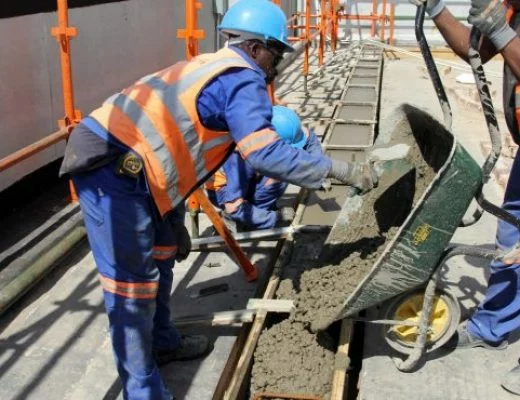By Siyabonga Hadebe
Johannesburg – Men in the construction industry usually appreciate summer because it comes with their saviour, rainfall.
Every time they see the rain coming, they scream the top of their voices … Woza Malamulela, Woza Malamulela Sisebenz’ endlini!
People who perform hard labour on farms, in construction, and mining occupy the lowest rungs of society and are usually poorly paid compared with those who work indoors.
The working conditions for hard labourers are not enjoyable.
Most of the people who perform those jobs have historically been foreced to.
In the past, African men (and later women) were drawn from the country’s hinterland and neighbouring countries like Botswana, Lesotho, Malawi, Mozambique and Zimbabwe.
They were cheap labour that was necessary in the building of an economy for white settlers. These men had absolutely no labour rights.
Apartheid South Africa only afforded a black worker some labour rights around 1978, following the recommendations of the Wiehahn Commission.
This commission was necessitated by a wave of strikes that erupted in Durban in 1973. However, the owners of capital in Anglo-American and the South African Minerals-Energy Complex were uneasy about the growth of militancy among the black population. Ernst Oppenheimer, who was regarded the “godfather” of South Africa Incorporated, was in conflict with the apartheid state but the National Party (NP) could not ignore him.
As a true, ruthless capitalist, Oppenheimer always had a plan to save his wealth. Oppenheimer started to put all sorts of pressure to undermine apartheid laws by focusing on the growth and development of the black population.
It is important to note that this did not mean he had a good heart, but it was the only way to protect his money within the pariah state.
He had a hand in the Soweto uprisings in June 1976. It was through him that the first approach by Corporate South Africa to the exiled ANC was made in the 1980s. In addition, Oppenheimer can be solely accredited for the unbanning of liberation movements, the referendum, the release of political prisoners and the Codesa negotiations, as well as the 1994 democratic elections.
The ANC was thus roped in to replace the NP under close supervision of the Minerals-Energy Complex.
The dream of freedom was relegated to the bottom; and Big Capital was to run the circus.
Follow @SundayWorldZA on Twitter and @sundayworldza on Instagram, or like our Facebook Page, Sunday World, by clicking here for the latest breaking news in South Africa. To Subscribe to Sunday World, click here.
Sunday World



